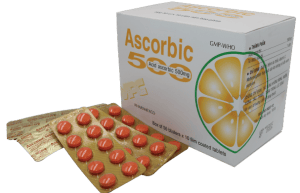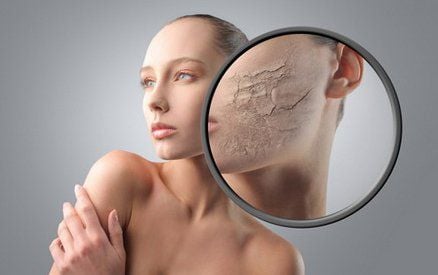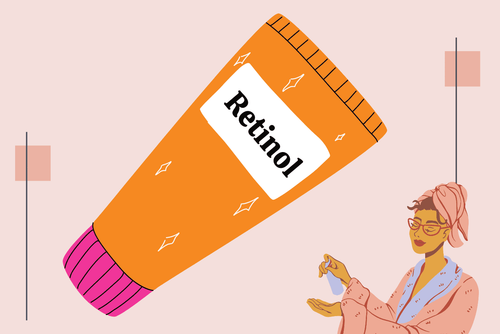This is an automatically translated article.
If you're trying to improve the health of your skin but it's not working even though you've tried many products and methods, then you need to rethink your products. Possible causes of your skin care not working could be the active ingredients or the method of preservation1. The reason why skin care is not effective can be due to active ingredients
When you're taking care of your skin, chances are you're following the most popular recommendation, the top search results are known to address your specific skin problem, such as salicylic acid for acne. acne or vitamin C serum for tanning.When you're faced with a skin care product that isn't solving your problem - or is actually making your skin worse, it can be not only frustrating but makes you even more confused. One of the possible causes is that the active ingredient contained in the product doesn't work
1.1. Salicylic acid does not work Salicylic acid is effective in treating acne. Signs that salicylic acid isn't working is that your acne isn't going away and your skin is damaged.
Why salicylic acid might not work. Not all acne is created equal, and if your acne is severe, salicylic may not be strong enough for you. Dermatologists often recommend that cystic acne will need something stronger than salicylic acid.
Fortunately, there are many acne-fighting ingredients. Face acids, retinol, zinc, sulfur and tea tree oil are active alternatives. You may even want to try blue light therapy at home. However, if your acne is chronic and cystic, your doctor recommends seeing a dermatologist. They may prescribe a stronger treatment, such as topical medication or prescription antibiotics, to control your acne.
1.2. Niacinamide has no effect Niacinamide works to reduce wrinkles, sun damage, redness, acne and overall skin health
Niacinamide has no effect when you don't see results and you notice the product is scabbing on your skin. Also, if you experience redness, itching, or burning, you can skip this ingredient.
Why it might not work: If the product is clumpy it means it didn't absorb properly into the skin and since it doesn't absorb it doesn't deliver results. If you experience redness or burning, your skin is likely sensitive to this ingredient.

Niacinamide trong sản phẩm chăm sóc da có thể cải thiện nếp nhăn, mẩn đỏ, mụn trứng cá
1.3. Retinol does not work Retinol works to reduce wrinkles, increase elasticity, reduce aging and acne
Signs that retinol is not working: You are experiencing redness, dryness, flaking or burning sensation after using retinol.
Why retinol doesn't work: The truth is, retinol can be too active for some people. Retinol is too powerful. You may also be using too high a percentage.
What to try instead: If retinol is too strong for your skin, try bakuchiol, a natural alternative. “Another alternative to retinol is bakuchiol,” says Jaliman. It mimics retinol to a degree because of its anti-aging properties, but it's completely natural, unlike retinol.
1.4. Vitamin C has no effect Vitamin C has the effect of reducing dullness, dark spots, elasticity. Signs that Vitamin C is not working: Vitamin C is supposed to nourish your skin. So if your skin has the opposite effect of being nourished, that's a sign that the ingredient isn't working.
Why it might not work: Just like there are different brands of orange juice, there are forms of vitamin C. If you have sensitive skin, certain types may not be right for you. If you have sensitive skin, avoid products with L-ascorbic acid. You may be irritated or upset.
If L-ascorbic acid causes your skin to react, try using magnesium ascorbyl phosphate, a water-soluble derivative of vitamin C that tends to be gentler on the skin.
1.5. Hyaluronic acid has no effect. Hyaluronic acid reduces dryness and dehydration. Signs that it's not working are your skin still dry and dehydrated.
Why it might not work: Hyaluronic acid hydrates the skin, but it alone probably isn't enough to give you a hydrated complexion. Hyaluronic acid alone won't give you the moisture you need.
You don't need to substitute hyaluronic acid in your skin care routine — you just need to add additional moisturizing products. Follow up your hyaluronic acid serum with a moisturizer or face oil to hydrate your skin.
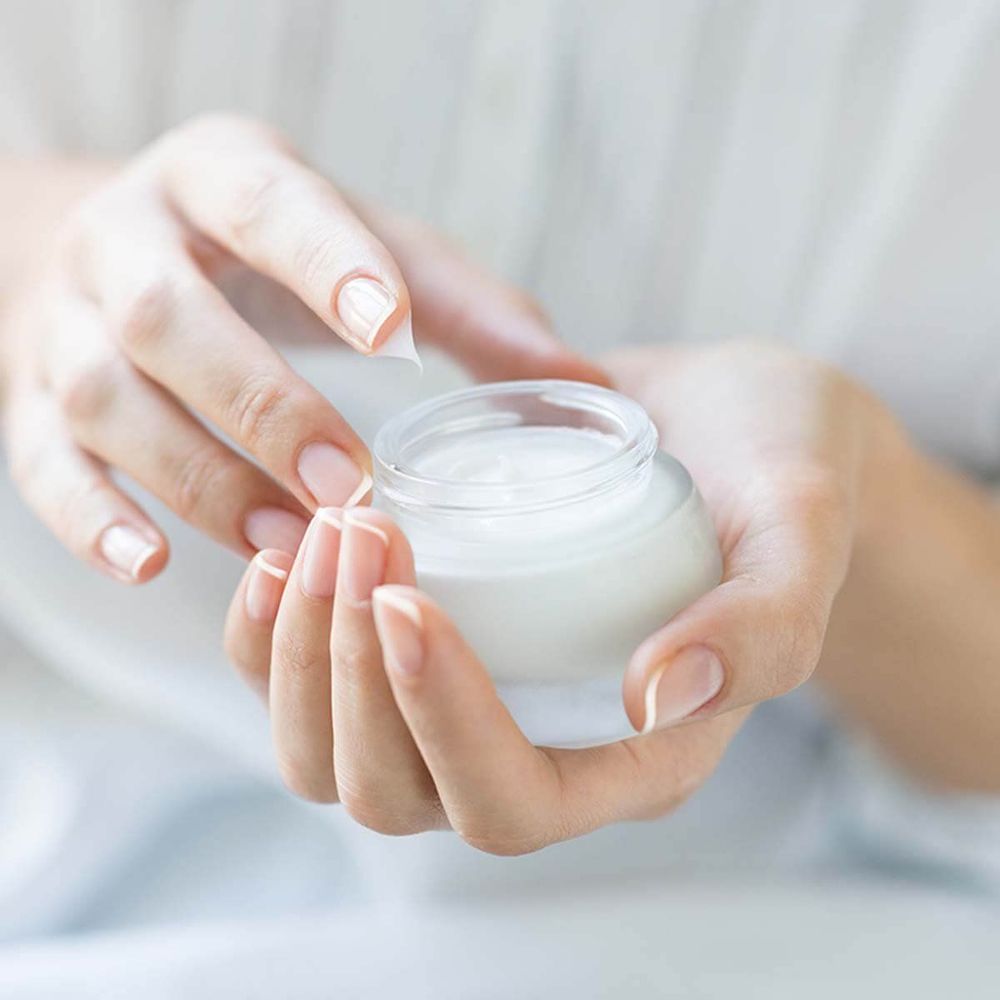
Bạn cần sử dụng kem dưỡng ẩm cùng axit hyaluronic để có hiệu quả trong quá trình chăm sóc da
2. The cause of ineffective skin care may be the product.
If something doesn't work, it might not be the ingredient - it could be the productDon't remove this ingredient from your skincare routine. There are several reasons why a certain product may not solve your skin problems.
2.1. Your product may be out of date If a product has been on the shelf for too long, usually 6 to 12 months depending on the product and packaging, it can definitely make the product less effective. - and less likely to get the results you're looking for.
“Products intended for consumer skin should undergo tests for stability and effectiveness. Unfortunately, because these tests aren't required and over-the-counter cosmetics aren't approved by the Food and Drug Administration (FDA), there's really no way for the American consumer to know a product. how long will it last,” says Brundha Balaraman, board of directors, board-certified dermatologist and founder of the SkinTRUST Association.
2.2. You are storing your product in the sun or in a humid area Store your products in the bathroom, where temperatures can rise very high as a hot shower can alter the effectiveness of the product. the result of several components.
Excessively high ambient temperatures can significantly affect product stability and performance. This means it can make your product react, even behave differently. "For example, sunscreen products used in cars that overheat may no longer provide protection against UV radiation, or may cause skin irritation."
You may want to store your products the way you store food: In the beauty mini fridge.
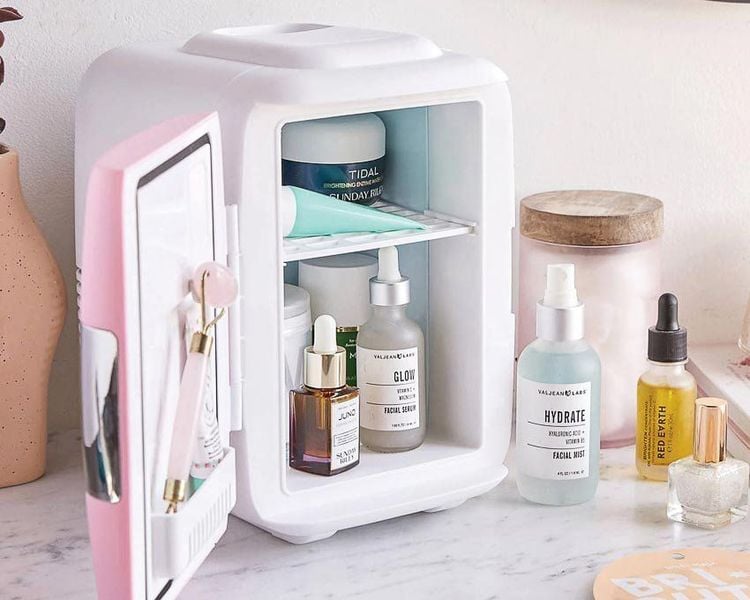
Bạn nên bảo quản sản phẩm chăm sóc da ở nơi khô ráo, mát mẻ
Before you powder an ingredient that doesn't work for your skin, Google your product's ingredient list. If the active ingredient is not in the top five, the concentration may not be high enough to see results.
2.4. Low-quality products Poor quality ingredients can cause an ingredient to not work. Not all skin care products are created equal, and sometimes we see that reflected in the price.
Inferior ingredients, poor formulation, unstable molecules or packaging are potential areas for quality control. For example, open vial packaging can let in a lot of oxygen, destabilizing the active ingredient.
If you've eliminated any potential problems with the product, chances are it's the ingredients.
Please dial HOTLINE for more information or register for an appointment HERE. Download MyVinmec app to make appointments faster and to manage your bookings easily.
Reference source: healthline.com



